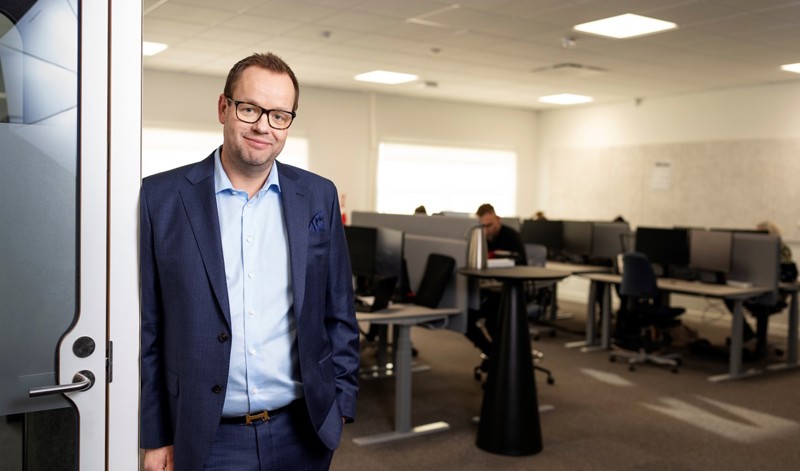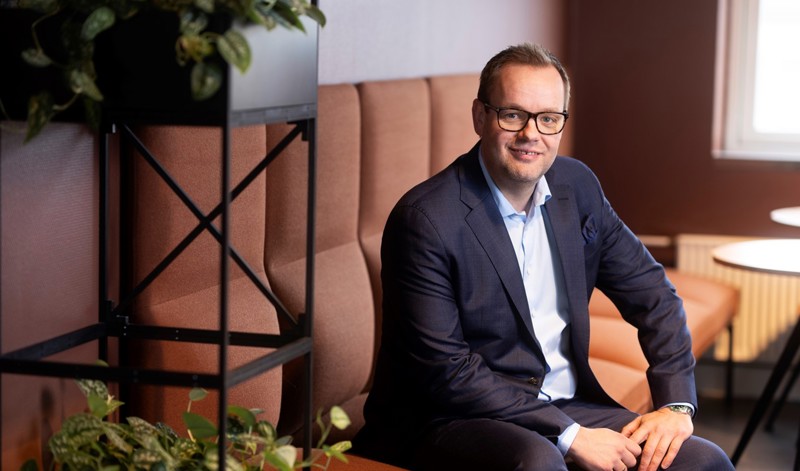Dialogue model fostered trust in a speech analytics system.
At first, the customer service agents at Nykredit were sceptical about a new technology. But the ‘Trust Key’ opened a good dialogue with the management about what the system was to be used for.
Two customer service teams in Nykredit implemented a new ‘speech analytics’ system. A technology that registers if you are saying the right words during a conversation with a customer and more.
But scepticism started to grow among the employees. It was not clear what the system was to be used for exactly, says Kasper Edwards, Senior Researcher in productivity and the physical working environment at the Technical University of Denmark.
“The minute you want to measure and quantify the work of the employees, they will begin thinking: ‘Is this yet another performance management system creeping up on us?’”
He is one of several experts who followed the implementation at Nykredit that had decided to apply the ‘Trust Key’ model – an experiment under Future Work Lab
 Foto: Claus Bech
Foto: Claus Bech
Frustration over empathy score
A so-called ‘empathy score’ intended to measure the employees’ empathetic abilities triggered the employees. But truth was that neither the management nor the employees knew beforehand that the system had such a feature.
“Suddenly, some were talking about this so-called empathy score that could assess how capable the employees are of expressing empathy. This wasn’t something we had ordered, so it was a surprise that it was part of the new technology,” says Morten Kjer Kerstens, Manager at Nykredit.
Based on words and sentences like ‘I understand’ and ‘That is indeed annoying’, the speech analytics system was to assess if the employee was empathetic. But the employees achieved a low score in a discipline they believed themselves to be good at.
“These phone agents are super talented when it comes to talking to people and can adjust their voice, language and intonation to the type of clients they are talking to. That’s something the system is incapable of capturing, and it led to frustration, obviously”, says Kasper Edwards.
Excellent learning tool
The employees had not been informed sufficiently that the new technology was an experiment, says Kasper Edwards.
“I think the management thought they had explained it clearly enough. But when employees hear words like ‘tracking’, ‘listening in’ and ‘recognising’, they interpret it negatively.”
As Morten Kjer Kerstens puts it, the intention was never to monitor employees.
“That was never the intention, but we undoubtedly underestimated how much thought some employees gave it. There are things we could have done differently, and I humbly recognise that when you start using a new technology, there is going to be a run-in phase in which everyone has to become acquainted with new features.”
The purpose of the technology was to give our customers an even better service, Morten Kjer Kerstens says.
 Foto: Claus Bech
Foto: Claus Bech
“We become quicker at assessing if there are areas that we do not inform the customers sufficiently about. We obtain empirical data that we may use in our development work and can target our training to increase the relevancy of our feedback to the employees. That way, the new technology will also benefit the employees.”
One thing at a time
The system was implemented using the Trust Key model – a model for how to establish a trustful dialogue between the management and the employees.
It was important to take one feature at a time, says David Karstensen, Process Consultant – another expert who followed the experiment.
“The testing starts quickly, but only one small feature is included at a time, something that both the employees and the management have okayed. It has a trust-building effect when we let each other test things to learn for ourselves,” he says.
The employees selected their own conversations, for example a difficult customer conversation.
“You could then get advice on this one conversation, either from the management or from colleagues especially good at this type of conversation," says David Karstensen.
The Trust Key
- A model for how to implement a new technology.
- The employees are closely involved in the process, which follows a fixed structure for dialogue with the management.
- Read more here: Future Work Lab-tool 6
The Trust Key is one of six experiments from Future Work Lab.
Future Work Lab was a joint effort between Finansforbundet, Forsikringsforbundet and the Danish Employers' Association for the Financial Sector funded by Velliv Association (Velliv Foreningen).
The aim was to develop knowledge on challenges, opportunities and potential solutions capable of strengthening mental health in the digital working life.
Time to think and listen
The system was tested piece by piece in periods of 3-4 weeks. The parties then sat down together and asked the following questions: Can we use it for what we want? What can we learn? The dialogue was managed tightly, explains David Karstensen.
“In normal dialogue, you would say something, and I would answer you quickly. The management would usually do most of the talking. Here, we forced the parties to stay in a listening position for longer. The management might have sat and listened to the employees for 7-8 minutes.”
The parties heard something in each other’s considerations which they had previously not given as much importance, and that made it possible for them to come closer to each other.
The Trust Key created, in Morten Kjer Kerstens’ words, “a good room for talking with one another, because it gives way to honesty and trust between the employees and the management.”





